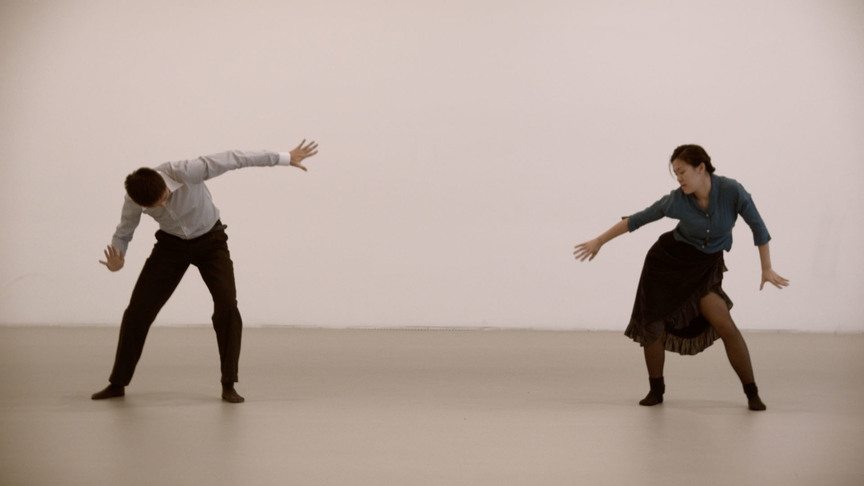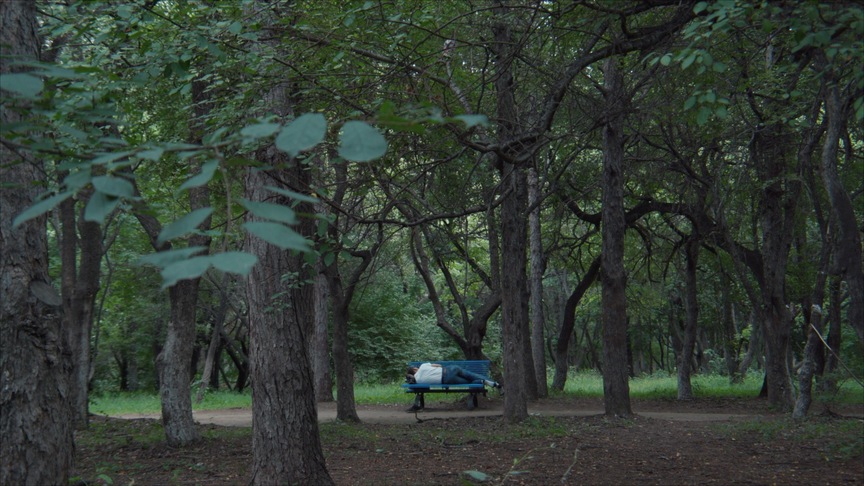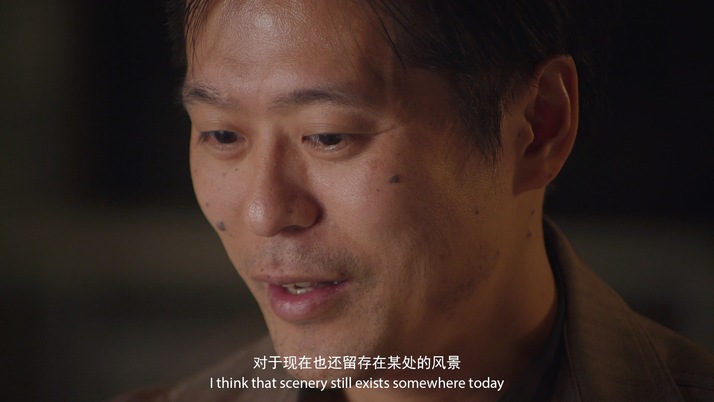Shows
Bodily Archives in Hao Jingban’s “Opus One”


In “Opus One” two dual-channel films by Hao Jingban formed a tight angular choreography of four screens in the center of Matadero’s exhibition hall. This set-up encouraged a shifting of attention across the two projects, which essentially tackle the same questions: What documents are available to us to construct our personal and national histories, and what regulates their circulation?
From South Lake Park to Red Flag Street (2018) is structured around the real and imagined voices of those who worked for the Manchukuo Film Association (or Man’ei), a Japanese propaganda-film company operating in Manchuria during the 1930s-1940s. Much of the film is set in a park near the company’s former headquarters and the now run-down building itself. The weathered walls become the blank page where Hao and her characters reflect on exchanges between the Chinese and Japanese employees. One Japanese worker remembers meeting a communist; the audible respect this encounter inspired in the interviewee seems to reveal that regardless of the party line, one’s politics is porous and conditioned by the uncontrollable realities of daily life. The artist’s ongoing research into Man’ei, which also serves as the basis for her 2018 film installation Forsaken Landscapes, coincides with the Chinese government’s decision in 2017 to push the start of the Second Sino-Japanese War back from 1937 (considered by most historians to be the beginning of the full-scale conflict) to 1931, when the Imperial Japanese army invaded Manchuria. In the context of Manchuria becoming once again the site of conflict between Japan and China—this time in terms of historical interpretation—Hao’s zooming-in on the company and its postwar dissolution seems to pose the micro-history as an oppositional tactic for diffusing the noise made by macro-historical squabbling.


Opus One (2019) follows young couple Suzy and KC as they practice swing dance at a club in Beijing, and trace the history of the mid-century style, which largely emerged in African American communities. On one screen the couple rehearse a particularly difficult flip, while the other screen splices archival footage of swing-dancers with clips of present-day performances in Beijing. Also included is footage of famed lindy-hopper Norma Miller’s funeral, which the couple attended in New York. Suzy and KC’s voiceover—which runs throughout the film—turns introspective: “I am afraid of being presumptuous or impertinent; what were we doing there?” As the protagonists reflect sincerely on the ethics of their enthusiasm, the film’s main question is crystallized: can we relate to, take on, be responsible for the gestures or forms of expression that emerge from experiences we have not lived? Hao’s focus on the young couple’s dedication to getting the dance moves right, and the ways in which they make the African American dance style a tool for their own community-building in Beijing, sensitively complicates the terms that structure the debate on cultural appropriation. With dance at the center of Opus One, Hao Jingban pivots from Red Flag Street’s exploration of archive and memory toward the body and asks: What could our bodily archives respectfully include?
Rebecca Close is ArtAsiaPacific’s Madrid desk editor.
Hao Jingban’s “Opus One” was scheduled to be on view at Matadero Madrid, until April 26, 2020. Please check the exhibition web page for up-to-date information in light of Covid-19.







